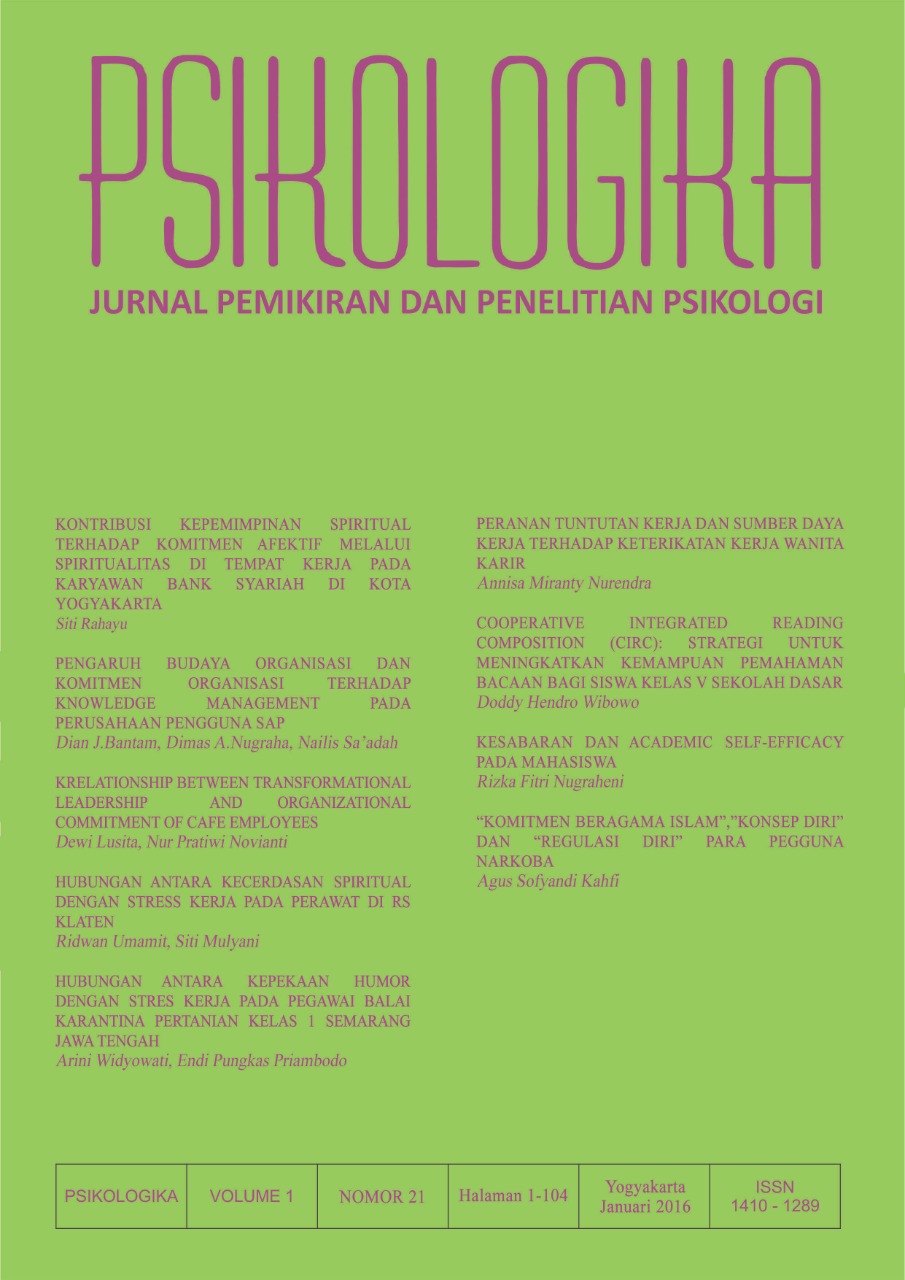Main Article Content
Abstract
The aim of this study is to obtain empirical data about corelation between Islamic religious commitment with self concept and self regulation. Moreover, the aim of this study to obtain empirical description of the Islamic religious commitment with its dimensions wich impact the self concept and self regulation of addicted indiviuals with tendencies to relapse. The method used by this study was causal comparative modeling technique which processed using multiple regression techniques. The Subject of this study is 30 addicted individual with intensive rehabilitation program. Measuring instrument used were questionnaires compiled Islamic religious commitment based on the three basic teaching of Islam, Fits's (1971) self concept and modified Zimmerman's self regulation (2000). Result from this study shows that Islamic religious commitment with its dimension has a significant relation with self concept (a 0.627) and (a 0.782) with self regulation,and has influence together on self concept by 0.41% and on self regulation by 62.1%.
Keywords: Islamic Religious Commitment, Self Concept, Self Regulation, Addicted, Relapse
Â
Article Details
Authors who publish with this journal agree to the following terms:
- Authors retain copyright and grant the journal right of first publication with the work simultaneously licensed under a Creative Commons Attribution-ShareAlike 4.0 International License that allows others to share the work with an acknowledgment of the work's authorship and initial publication in this journal.
- Authors are able to enter into separate, additional contractual arrangements for the non-exclusive distribution of the journal's published version of the work (e.g., post it to an institutional repository or publish it in a book), with an acknowledgment of its initial publication in this journal.
- Authors are permitted and encouraged to post their work online (e.g., in institutional repositories or on their website) prior to and during the submission process, as it can lead to productive exchanges, as well as earlier and greater citation of published work (See The Effect of Open Access).




